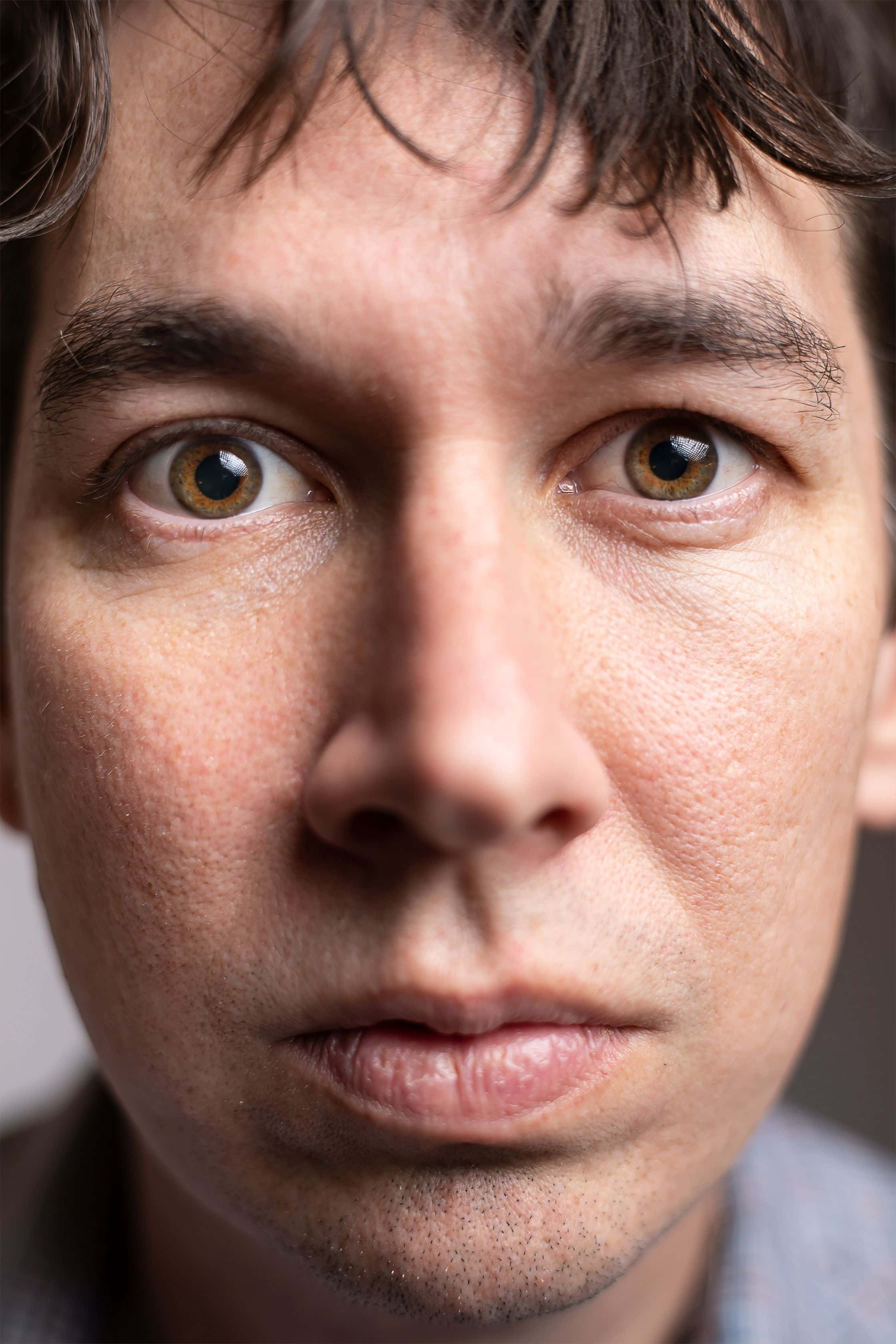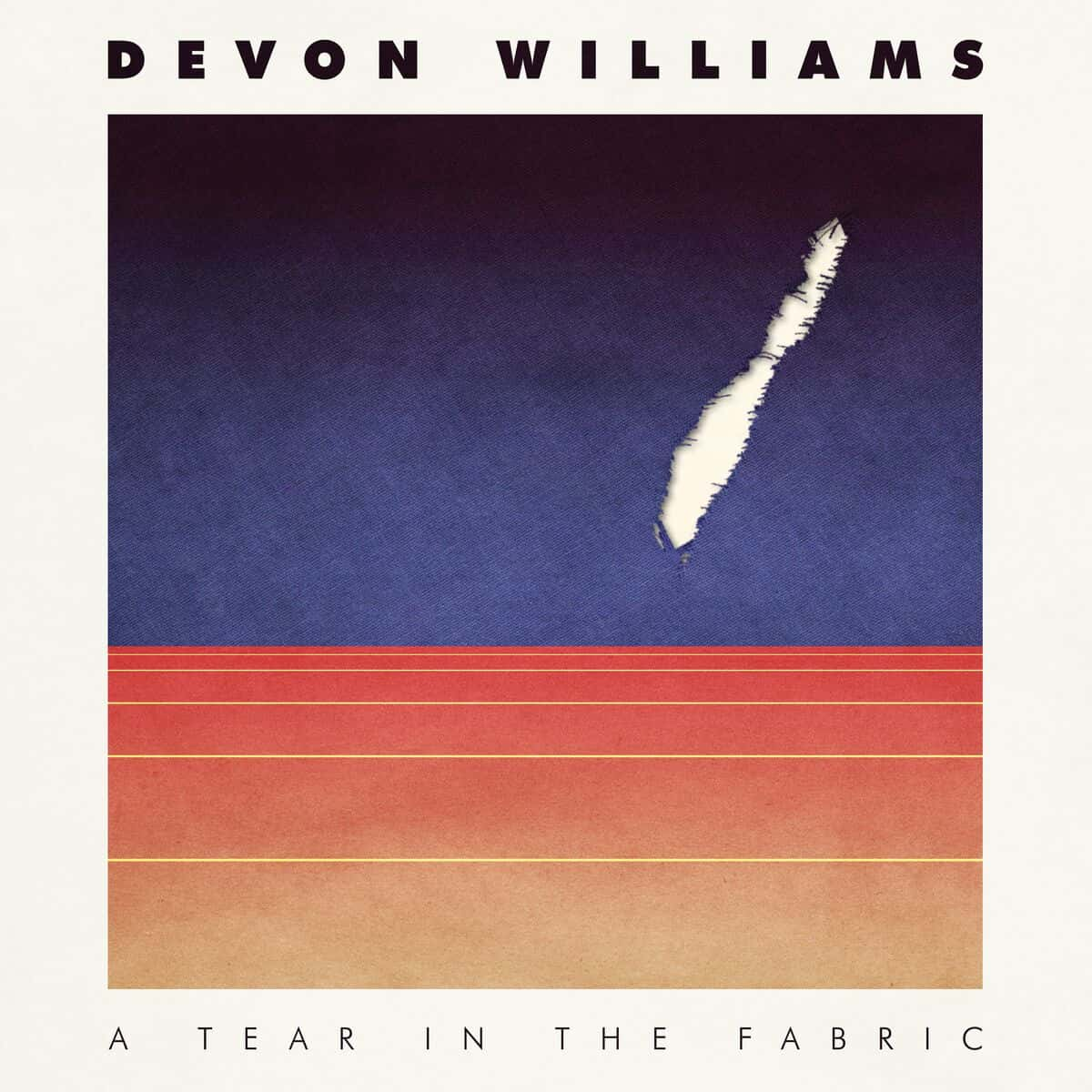Devon Williams says you 'don't have to be suffering' to write a good song, shares his favorite playlist

Devon Williams is a prolific Los Angeles-based singer-songwriter who made a name for himself while still in high school with the influential punk rock band Osker. As he continued on his musical journey over the years, Williams showcased the depths of his range and talent by playing simplistic indie folk with Fingers Cut Megamachine, romantic indie pop with Lavender Diamond & dreamy noise pop with the Champagne Socialists.
Now after three solo albums, Devon Williams has honed a trademark blend of power pop, folk, and jangle pop, aided by his innate melodic gifts and sincere songwriting. His latest album, 'A Tear In The Fabric' comes out on May 1 after an uncharacteristic six-year recording hiatus. The years since his '80s pop venture 'Gilding the Lily' (2014) were defined by a series of major life changes — Williams' father passed away in 2019 and his baby daughter was born four years ago.
Forced to confront these jarring shifts to his reality, Williams grappled with who he was and wanted to be in his latest batch of gestating songs. The resulting tracks on 'A Tear In The Fabric' are a series of evocative snapshots for Williams: questions asked, answers given, compromises reached. MEA WorldWide (MEAWW) caught up with Williams for an interview ahead of his upcoming album release on May 1. Excerpts:

You've played everything from punk & indie rock to folk & pop crooners. What do you think best describes your personal idiosyncratic style?
Some of the songs I've written are inspired by or are a reflection of songs that I love. There are many different types of songs that inspire me, but I think it all comes out of me in my own sort of way. I think my own personal "style" is that any of my songs, I can sit down with just a guitar and sing them to you, maybe by a fire.
In the past, you've outright said, "I don’t wanna make money playing music," and enjoy having a regular job that pays the bills. Is this a "music for music's sake" approach?
I don't know if I personally would be happy to live a life where my primary source of income was songwriting and recording music. I love those things, and I think it would lose some of the importance, or sanctity for me if I just sat around playing guitar and bemoaning this or that. However, since this pandemic started and we've all been staying home (about 4 weeks in now), I've been home all day with my family, writing music, but also doing other things more than usual. Reading, drawing, cooking, walking, playing cards, listening to music, washing my hands, re-washing my hands, cosmic kids yoga... These are not things I get to do usually because I'm at work. So, whatever job I can do from home, that's what I prefer.
Your song 'In Babylon' is a beautiful new track and the word "Babylon" alone has a lot of history and weight behind it. What was your reasoning behind the name?
'In Babylon' is about feeling like you have an imperfect mind, and wondering if you give too much weight to daydreams, or if the daydreams keep you sane. The word/place 'Babylon' has its own historical context, so I used the word in a different context, as a device.
You're a master of the pop genre and have seen plenty of artists make it or break it in the power pop scene — what makes a song successful according to you?
There are two great power pop comps from Rhino Records — 'Starry Eyes - UK Pop' - Its got 'Girl of my Dreams' by Bram Tchaikovsky, 'Starry Eyes' by The Records. And then 'Come Out and Play - American Power Pop' which has Flamin Groovies, Artful Dodger, Piper, Chris Bell. Some of these songs are immortal, so isn't that the goal of a song? To live on? I'd say that's pretty successful.
Do you think it's necessary to channel one's pain to create art that is both meaningful and sincere? What's the songwriting process like for you?
You don't have to be suffering to write a good song. Songwriting for me is cathartic, and so is hearing a great song. A song can be fleeting. It's 3, 4, 5 minutes. We sometimes love a song forever, we often love a song for a short time. But it's such a rush when you hear the perfect song.

'A Tear In The Fabric' refers to a tear in the fabric of your day-to-day life following some seismic, life-changing events. Is there a deeper underlying concept to this phrase?
The album (and song) title 'A Tear In The Fabric' applied to a thread — pun intended — that ran through all the songs. Fabric being stability, and the tear — the changes that we've got to constantly mend. It's like Sisyphus pushing the rock up the hill. Or a spider spinning a web. It gets torn down. But it spins again.
Can you tell us about some memorable or encouraging moments that you've experienced in your musical journey?
I'm so grateful for the friends that sacrifice their own time, energy, and money to play my songs. I feel really lucky actually. I think "music" is the way these friends and I experience life, it's like a language. We text each other about our favorite Waterboys' or Kinks' albums. We spend hours faithfully learning cover songs. We buy each other records we want to share. We play on each others' songs. So, when they play with me, we may not make money from playing shows to half-empty rooms, but there's still lots of joy in it.
Can you list some of your favorite songs for us? You've spoken of your love for The Cleaners From Venus and Clifford T Ward previously.
Here's something better — how about I share with you a playlist of great songs by some incredible singer-songwriters.
'A Tear In The Fabric', the fourth solo record by Devon Williams will release on May 1, via Slumberland Records.










